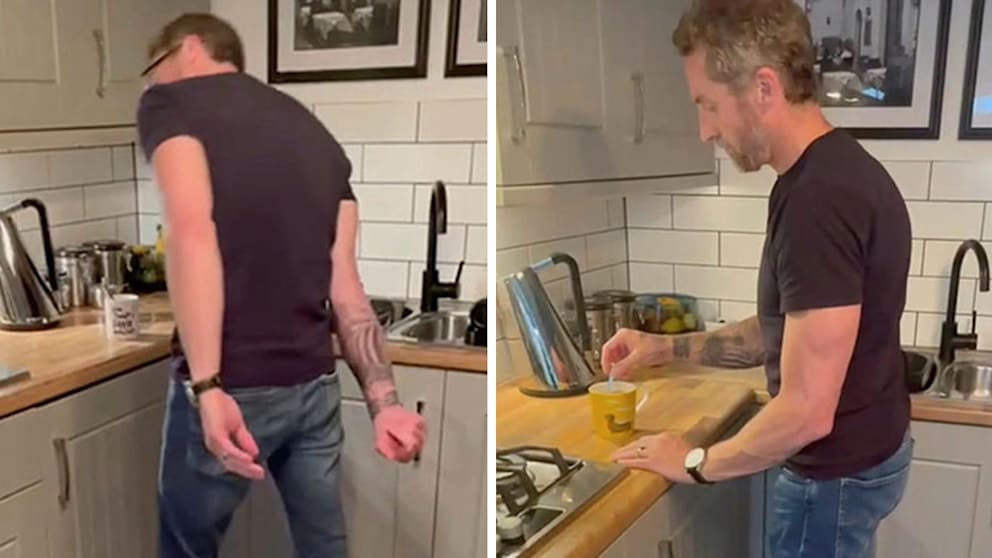Parkinson's: Thanks to a medication pump, Damien is making tea again | Life & Knowledge



Damien Gath (52) is standing in his kitchen. A cup is in front of him. He wants to make himself a tea, but his body is tense.
The 52-year-old is Parkinson ill. For twelve years, the disease has made his everyday life increasingly difficult. Due to the spasticity and stiffness, even making tea became a challenge for the Brit.
Now a new therapy is changing the Parkinson's patient's life! With the help of a medication pump, Damien Gath can cope with his everyday life again: The Brit pours some milk into his tea and stirs the cup casually.
“Soon after the first treatment, I was able to make a cup of coffee and go to the supermarket more easily, and I also sleep much better,” Gath explains enthusiastically how the DailyMail reported.

The photos of Damien Gath (52) show the Parkinson's patient tensing up while making tea (left) and how he can now stir the cup in a relaxed manner thanks to the new medication pump
Pump continuously supplies patients with dopamine
The key to his personal little miracle: a portable pump that continuously injects a drug containing the active ingredients foslevodopa and foscarbidopa into his veins. At the end of 2023, this new therapy option was approved by the European Medicines Agency (EMA).
Damien Gath is one of the first British patients to receive pump therapy. The pump is already being used in Germany.
Prof. Christoph Kleinschnitz, Director of Neurology at the University Hospital Essen, explains: “The drug It is first administered directly under the skin using a pump and then reaches the brain via the blood. This means that the drug level can be maintained continuously. This drastically improves the quality of life of the patients and can alleviate the symptoms over a longer period of time.”

The medication pump can be strapped around the abdomen, and the body is continuously supplied with active substances through a small tube
Because: The Drug pump increases the amount of the hormone dopamine in the brainwhich is responsible for movement and mood. Prof. Stephan Klebe, senior physician and Parkinson specialist at the University Hospital Essen, told BILD: “In the disease, nerve cells that produce dopamine die. The neurotransmitter is responsible for motor skills. If dopamine is missing, symptoms such as slowed movements, tremors and stiffness of the Muscles.”
Parkinson's disease is considered incurable. Until now, patients have mainly been treated with tablets to alleviate the symptoms: Damien Gath reports that he recently had to take a cocktail of four drugs up to six times a day to control his involuntary movements. Now the pump supplies him with the Messenger substance.
A life without Parkinson's symptoms
The heartwarming images of Damien Gath were published on social media by the British clinic Sherwood Forest Hospital near Nottingham.
Damien's wife Amanda filmed her husband's progress and says: “Sometimes it was difficult to deal with the lack of understanding of the people around you. That's why I was very protective of Damien.” His wife Amanda enthuses: “Now we are like any other couple and we are having fun.”

Attending physician Dr Nishantha Silva from Sherwood Forest Hospital near Nottingham with Damien and Amanda Gath and nurse Samantha Haynes
The medication pump gave Damien Gath back his quality of life: “It was extraordinary and changed my life. The big difference is that there are no more fluctuations now.”
